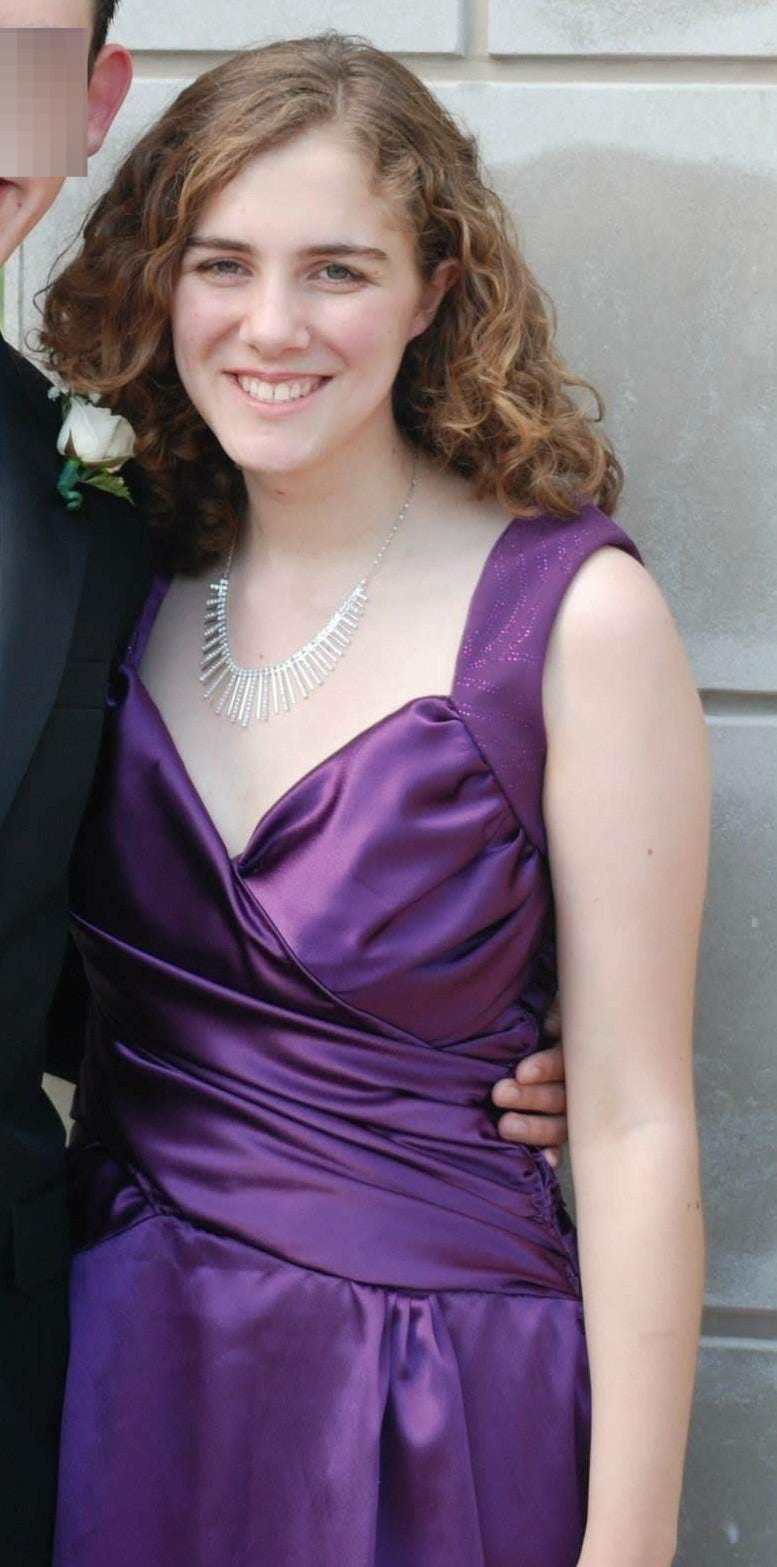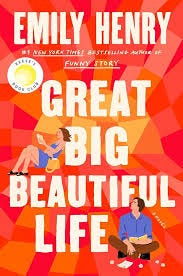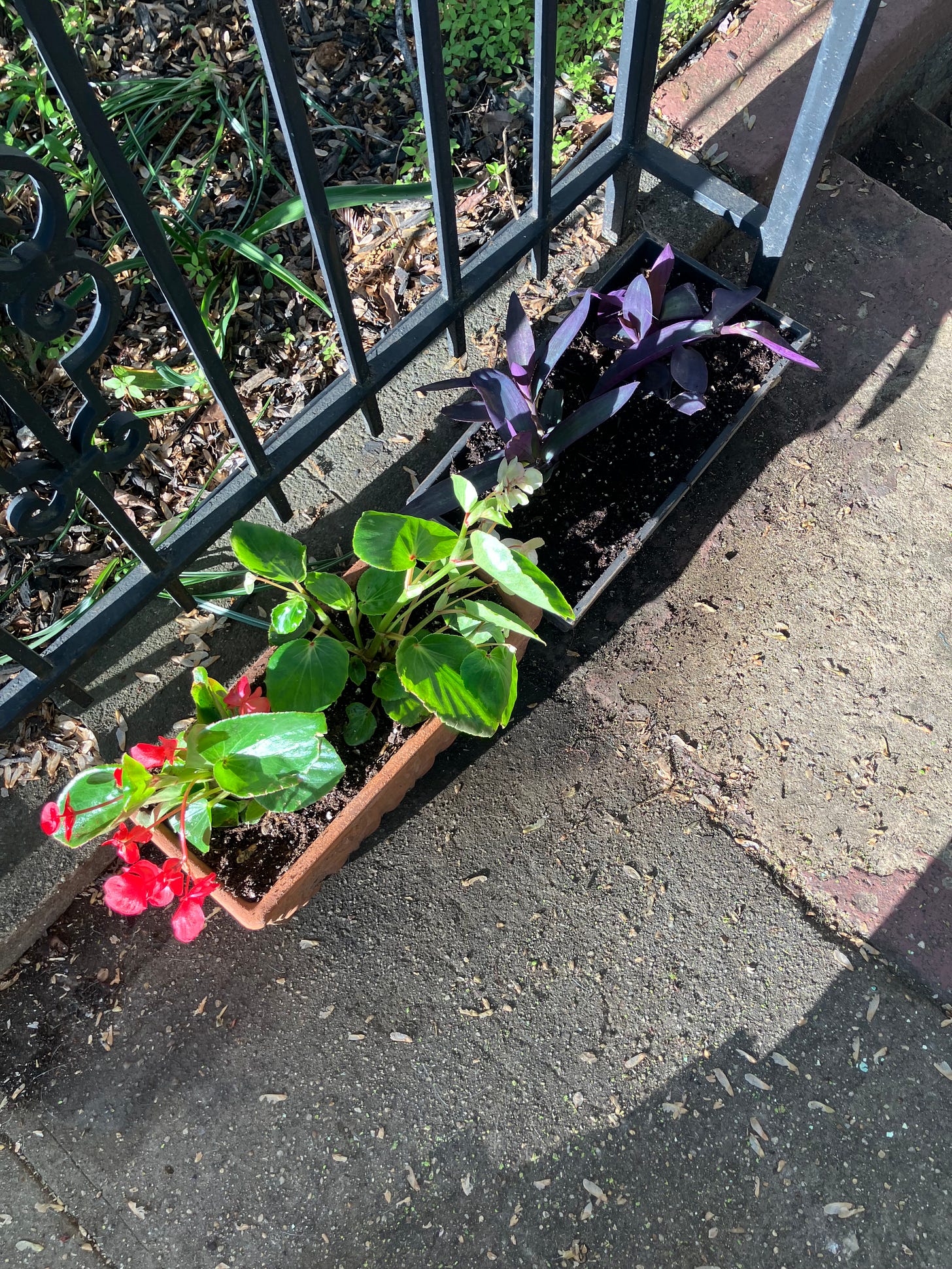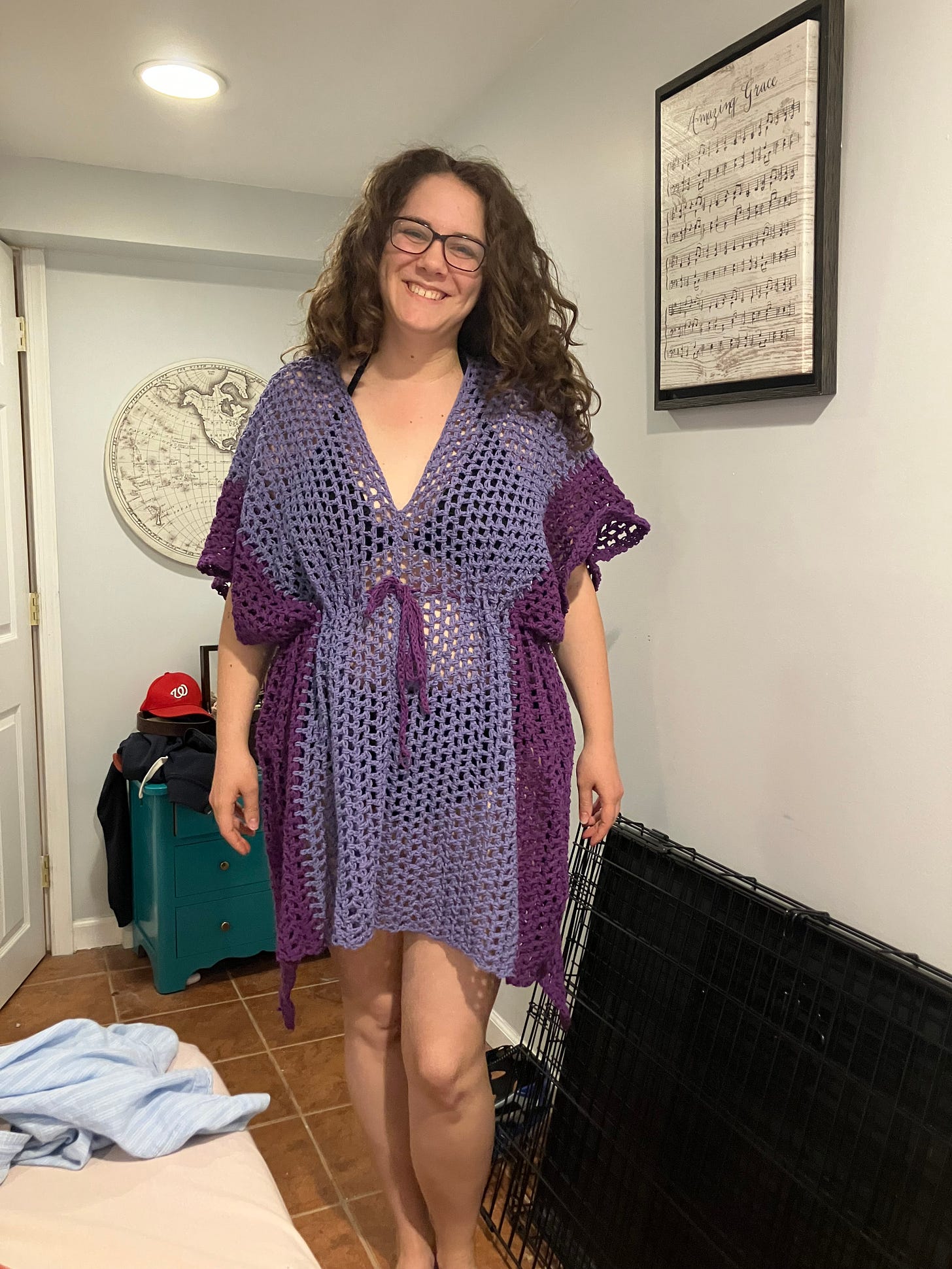Today we’re taking a short detour away from Middle Earth because I a) let my e-book of Return of the King get returned to the library and b) got extraordinarily distracted by Emily Henry’s new book Great Big Beautiful Life.
I mentioned Henry’s last book in my newsletter on weird, expensive clothes.
“I also read and loved the new Emily Henry, Funny Story, which had me thinking about home and place and community, and also therefore crying because her depiction of all three is so perfect.”
Wow, quoting myself.
Anyway, my thesis statement is unchanged, but I think it deserves more than a sentence at the end of a newsletter.
By the Sea
Emily Henry’s books, including this newest addition, center on quirky small towns, usually by the beach, where her characters fall in love with each other but also with the places that accept them and become their homes.
She builds the kind of towns you wish you could visit, or move to, or come back to again and again. (Her books do seem to exist in the same universe, so sometimes we do get small updates about the towns, which is fun.)
These kinds of towns are, arguably, available in Hallmark movies or the travel channel. But I think what hits so hard for me in Henry’s work is that her protagonists are often longing not just for a town like that, but for belonging. Here’s the bit of Funny Story that had me crying in the first twenty pages.
(For context, Daphne had moved around a lot as a kid and then she meets a guy and they get engaged and move back to his hometown.)
“Then Peter and I moved into the Waning Bay house, with its wraparound porch. That day, he scooped me into his arms, carried me over the threshold, and said three magic words that changed my little minimalist heart forever.
Welcome home, Daphne.
Just like that, something in me relaxed, my gooiest parts oozing out beyond my heretofore carefully maintained boundaries.
Until that moment, I’d carried my life like a handkerchief knapsack at the end of a broom handle, something small and containable I could pick up and move at the drop of a hat. And I never knew what it was I was running from, or to, until he said it.”
Plot twist, and not a spoiler because it’s in the first pages of the book, but this is not the real love interest. He’s a lying cheater and she does not, ultimately, stay in that house.
I’m not quite knapsack minimalist - I have too many books and too many purses I got from my great grandmother - but I get this feeling. Once, to get out of a very very bad roommate situation, Will and my mom and I packed everything I owned to move out of a college apartment in the space of about two hours.
I do think it’s interesting that this first, ultimately wrong version of home for the character ends up being centered on stuff, on the permission to settle in physically.
I also don’t think it’s a spoiler to say what ultimately makes her feel at home in the town she adopted for this other, wrong guy, isn’t stuff, but people, including her real love interest.
It would be easy from the outside, I think, to assume that people read Henry’s work or other romantic fiction because they long for the love they see in those pages. But in my case, at least, I’m good on the love front.
If I want to point to home, it’s Will and Roxie. It’s my family and friends.
But I still feel a bit like Henry’s heroines - longing for home as a place, wondering if it can be found where I live, in some far off future spot, perhaps in the pages of a book.
Where are you from?
When people ask where I’m from, I say Missouri. If they ask more than that I say Jefferson City. If they’re not familiar with the U.S. State Capitals, I explain that it’s about halfway between St. Louis and Jefferson City.
If this newsletter had a fact checker (other than me), I don’t think they could find any flaws in this statement. They would find records of my graduation, brief newspaper mentions for my time in band, choir, and theatre. They’d find my parents, still living in the house where I took pictures before the junior prom.

But if you wanted argument against this fact, I think you could get it. That high school diploma is from two years after we moved back from Ithaca. It’s from about six months after a girl named Kim, in asserting that she should stand in the front of a color guard line during awards (honestly, life was so simple and yet so dramatic), figured she was more senior than I was because, to her, my time in band outside of Jefferson City didn’t count.
Kim didn’t feel I was from Jefferson City. When I say car-a-mel instead of car-mel, or sneakers instead of tennis shoes, I’m sure she could get some takers on her side.
But even for me, from and home don’t feel the same. I no longer recognize the teenage cashiers at HyVee. I don’t know the worship songs at my parents’ church. I am not the person I was in the years our fact checker would find - no longer angry at Missouri, but no longer enchanted by being a teenager either.
Even from is more complicated than a diploma.
I moved around what I’d call a medium amount as a kid. Not a military amount (I was talking to someone the other day who measured the places she lived growing up in months, rather than years), but not a small amount either.
The longest we ever stayed anywhere was five years in Ithaca.
Once, in college, I went to visit Elie in Ithaca a few days before a local election. We planned to go door-to-door canvassing together, and before we went out into the October chill, I threw on my Alabama marching band jacket.
I’m not one to let other people regulate what I wear, but Elie had an interesting objection - that the jacket, with Alabama in block letters across the back, made me stand out as not local. It was the only jacket I’d packed for the weekend, but Elie lent me one of his and we were on our way. At several of the houses, as I stood there in this other, nondescript jacket, Elie explained to voters that I’d grown up in Ithaca.
Our fact-checker can’t find a lie here either. I arrived in Ithaca a snot-nosed 11 year old struggling to fit in. I left at 16 determined to stand out, my glasses a little less rose-colored but my ideas about the world so much clearer than they’d once been. Of course I grew up over those five years. Caramel and sneakers are results of those five years. So, in its way, is the guilt that finally made me stop eating meat two years ago.
But if he’d phrased it differently, told people that I’m from Ithaca, our fact checker would pull out witness statements that show me singing along to every lyric of the Zac Brown Band’s “Chicken Fried” or drinking a slushy in the passenger seat of somebody’s car at Sonic.
When I first got to college I phrased all this as “from Missouri, by way of upstate New York.” (Is Ithaca upstate? Not really. But in the first few weeks of college kids from Kenosha, Wisconsin, were saying they were from Chicago, so we were all fudging a little bit.) I wanted something quick that covered the places that felt important to my story.
I’ve gotten to go back to Ithaca a couple times more recently. I took Will for the first time in 2021, and hoped against hope that six years of explaining it as a magical place wouldn’t have set his expectations incorrectly. But as we sat by the lake under a weeping willow, the July sun moderated by a combination of the latitude and the breeze off the water, he said he understood.
But I also realized on those visits that as magical as it is, and as much as it is part of my story, Ithaca no longer feels like home. The time away has mattered there, just as it has in Jefferson City.
I don’t think this is about the moving around, really. Will spent his entire childhood in Moody, Alabama, and says it also no longer feels like home. He has loyalty to the state, to his family, to the place that raised him, but that’s not the same thing as looking around at the new Publix and a high school football team that almost won state and feeling that they’re yours.
Home For Now
We’ve been in D.C. for three years now, and the DMV for nearly five. This is our third apartment in that time (and the best of the three by far). I planted tomatoes last weekend. I have a favorite coffee shop that closed and a favorite coffee shop that replaced it when we moved ten blocks. Probably, in terms of place, this is the most anywhere has felt like home since Ithaca.
It’s not a quirky beach town. Someone stole our car, so getting to the water at all has gotten harder. It’s not small (though thank goodness for the metro, re: stolen car). And if the right job came up at some point in the future, or if we wanted to buy a home and have that home not be a wildly overpriced condo, I think we’d probably move.
The tomatoes are, if I’m honest, already looking a little sad. (The lower leaves are turning yellow. I don’t think they’re getting enough sun. But also I have some fertilizer that our previous neighbors left and I’m considering trying that.) Wherever we went, I’d still have Will and Roxie. There are other coffee shops, right?
And yet there is something I’d miss.
And I think it’s what makes the Henry books great, more even than the towns themselves. When her protagonists fall in love with a place, they’re finding their place in it. Daphne in Funny Story has already been in the town. She knows its grocery stores and coffee shops and whatever other infrastructure makes it look the way it does. What’s so wonderful to watch over the course of the book is the way she falls in love with the community.
I don’t know, really, if D.C. is my home. But if I think of leaving, I think of the community we would lose. I like running into Mary Anne from church on her way to yoga. I like that Roxie wags her tail for other dogs she knows on the street. I like recognizing baristas and saying hi to acquaintances and lending out a cowboy hat to somebody I need to remember to get it back from.
What makes me cry over Emily Henry books is twofold. First, a worry that I might never get the kind of home her heroines find, that by not being from just one place or not being ready to settle into one definitely forever, I will deny myself a full feeling of home that’s related to a place, quirky beach town or otherwise. And second, a fervent wish that I will, and a feeling that in some ways I already have.
What Else?
Tolkien
I got a paper copy of Return of the King at Capitol Hill Books yesterday, so I promise we’re going back, hopefully by the next newsletter. Thanks for being patient, both on that and on the fact that this newsletter is a day and a half late.
Cooking
After being entranced by the picture for nearly two years I finally made this chopped jalapeno ranch salad from the New York Times cooking the other day. It’s so much work and I was running late for a dinner, but honestly it was totally worth it. But if you make it set aside three to four times the amount of time the recipe calls for, because it doesn’t account for the copious chopping you have to do.
Craft Project
My toxic crafting trait is that I start a project, work really fast for two weeks, and then leave it for a month. But I finally finished this swim coverup!
Public Media
If you, too, are thinking today about the future of NPR and PBS stations and the news, entertainment, and emergency communications they provide for places big and small, may I recommend a donation to some of my old favorites
I grew up with KBIA out of Columbia, Missouri, listening to Car Talk and Prairie Home Companion in the back of the car.
Alabama Public Radio gave me my start as a reporter, for which I’m forever grateful.
KDLG in Dillingham, Alaska, brings news, including tide levels and other weather information that’s vital for the safety of the fishing community, to a huge stretch of Bristol Bay that would otherwise be a news desert. It was also part of the weirdest summer I have ever had.
And Nebraska Public Media, which used to be much more confusingly called Nebraska Educational Telecommunications, gave me my first grown-up job and the chance to be out in the community every day telling stories.
Wherever you live, there’s probably a public radio or TV station doing wonderful work and telling the story of the place you call home.








